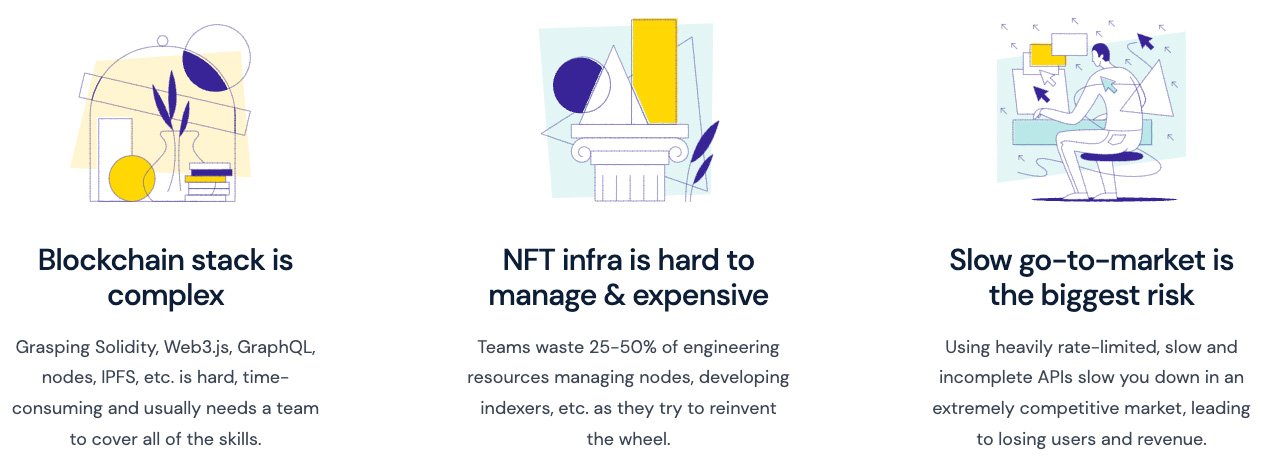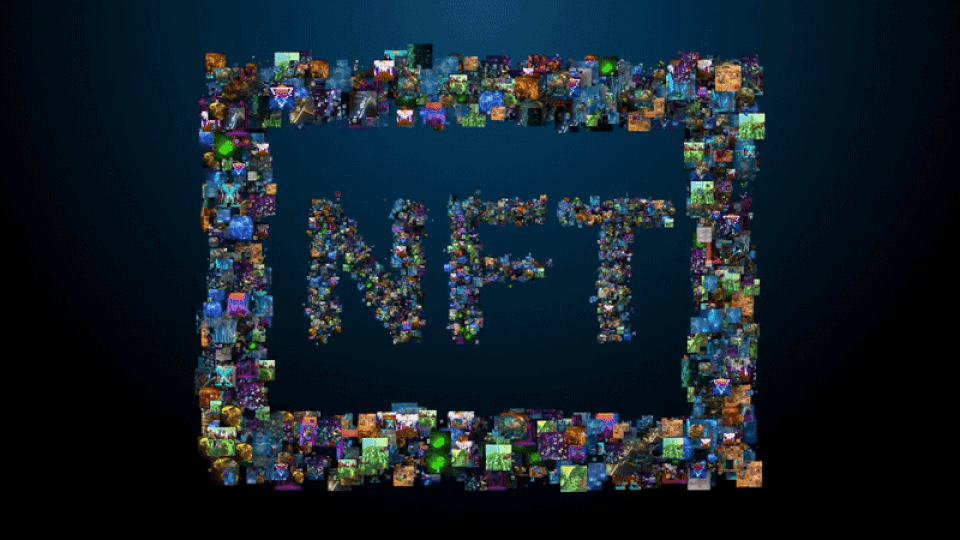Tallinn-based NFTPort has raised $26 million in a Series A funding round. As we’ve seen in the fintech sector and its associated infrastructure service providers, NFTPort is doing much the same for, you guessed it, the NFT space. The funds will be used to further scale the company's core product offering, one that promises to bring NFT apps to market in a matter of hours instead of months.
Generally speaking, anytime I hear NFT-anything my left iris starts drifting north, only to be followed seconds later by my entire face glazing over in a look of, "Again? Really? Really?" As far as I see it, there’s a reason those monkeys are so bored at their boat hangout, they’ve been talking about NFTs. Again.
I know exactly where this reaction comes from. It’s one I’ve had for a long time; the bigger something gets hyped, generally speaking, the less and less I want to have anything to do with it. And such is the case with NFTs. Bigger hype, bigger no thanks.
NFTPort might just be the factor that changes my mind.
I knew the day would come eventually. I'd have an NFT-related story land on my desk that was just too juicy to roll my eyes at. Today is that day. In doing my research for this piece, I’ve come to realise that perhaps I’ve been underestimating just what an NFT is and what you can do with it.
The easiest way for my simple mind to understand the latent potential of an NFT is that of a candy bar wrapper. Inside this wrapper, you can stuff any and all types of candy; images, videos, music, festival tickets, etc. if it can be digitised, it can have an NFT wrapped around it. The sole purpose of this wrapper is to serve as the definitive voice of ownership of this data. There's no question of who's candy bar it is. So put mine down.
But hang on a second. If that’s all there is to it, why isn’t everyone and every organisation wrapping everything in sight?
“When a company decides to build their NFT infrastructure today, it would either have to expend significant sums of money for scarce web3 developers or invest time upskilling a web2 developer to carry out the work,” explained NFTPort CEO and co-founder Johannes Tammekänd. “Managing constantly evolving blockchain technology quickly becomes a multi-million dollar problem for most companies wishing to build their own NFT infrastructure; like accepting payments online pre-Stripe or building a tech-based product pre-cloud.”
Basically, a blockchain stack is by no means an easy feat to master, NFT infrastructure is hard to manage and costly, and speed counts; if you’re not first to market, you’re practically already dead in the water.

“Demand will only increase further as NFTs move beyond images, which will compound pre-existing supply-side issues,” added Tammekänd. Yeesh.
By now, either your head is spinning, in which case I suggest you take a break and check in with Wordle, or, the lightbulb above your head just went off and you’ve realised that NFTPort is building solutions that are aimed directly at these pain points in the NFT world. Hopefully, it’s the latter.
Already in use by some 30,000+ developer teams, NFTPort’s offer regularly makes an appearance at notable Web3 companies including Nifty Gateway and Protocol Labs. As of March of this year, developers using NFTPort had minted over a million NFTs on Polygon, a Web3 infrastructure built on Ethereum.
NFTPort’s $26 million Series A round was co-led by Taavet Hinrikus and Sten Tamkivi’s investment vehicle, Taavet+Sten, and Atomico. Protocol Labs, Sparkle Ventures, and IDEO CoLab Ventures also participated in the round alongside a number of notable angel investors including Polygon co-founder Jaynti Kanani, former Twilio CTO, Ott Kaukver, former Coinbase CTO Balaji Srinivasan, and Polkadot co-founder Jutta Steiner.
As part of the deal, Sten Tamkivi will join the team as a co-founder, as well as Rain Johanson, former CTO of Bolt, who joins as a CTO and co-founder.
“We have high conviction in a shift towards increased digital ownership powered by NFT technology, and the potential for NFTs to become a new asset class. However, a lot of the infrastructure required to underpin the widespread adoption of NFTs and other web3 technologies still needs to be built, and this is where NFTPort comes in,” commented Atomico’s Irina Haivas. “We’re energized by the team’s mission to lay the foundations for an internet that is ownable by citizens.”



Would you like to write the first comment?
Login to post comments